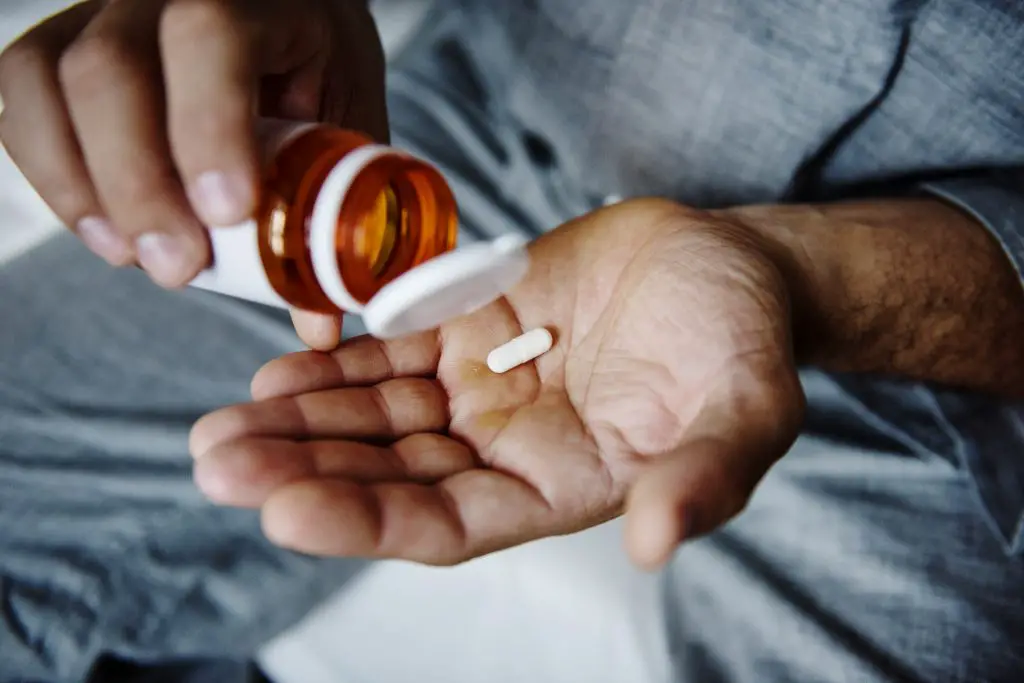Should You Take Probiotics with Food or on an Empty Stomach?

As an affiliate, we may earn a commission from qualifying purchases. We get commissions for purchases made through links on this website from Amazon and other third parties.
Probiotics are important for gut health, but there is a lot of confusion about when to take them. Whether you should take probiotics with food or not, and whether you should consume them on an empty stomach or not?
Many people don’t know if they should take probiotics with food or on an empty stomach.
This guide explains the benefits of taking probiotics, how to choose the right supplement, and when to take them for optimal results.
What is the best time to take probiotics?
When it comes to taking probiotics, there is some debate about whether it is best to do so with food or on an empty stomach. Proponents of taking probiotics with food argue that the food helps to buffer the probiotics, making them more effective.
Additionally, they point out that probiotics are often taken with other supplements, such as probiotic-rich fermented foods, which need to be eaten with a meal in order to be properly absorbed.
On the other hand, those who advocate taking probiotics on an empty stomach argue that the stomach acid will kill many of the probiotics before they have a chance to reach the intestines. They also point out that most people don’t have an issue with probiotic foods being properly absorbed.

Should I take probiotics before or after eating?
The best way to take probiotics is with food. This helps protect the probiotics from stomach acid and allows them to reach the intestines where they can start working. After you eat, your stomach’s pH rises to about a four, which is much less acidic and easier for probiotics to survive, so it’s best to take your probiotics alongside a meal
However, probiotics are tough little microbes and can also survive on an empty stomach. So if you’re in a hurry or don’t have anything to eat, taking probiotics on an empty stomach is still better than not taking them at all. Just be sure to drink plenty of water so that the probiotics don’t end up dehydrated.
When should you not take probiotics?
The majority of experts and studies agree that the best time to take your probiotic supplement is first thing in the morning.
Probiotics are living organisms that require food, water, and heat to thrive and multiply. Because there isn’t enough food or water for the bacterial strains to thrive in the morning, conditions aren’t ideal for probiotics.
Another reason early morning isn’t the best time to take probiotics is that your stomach acidity is really high. Your stomach is more acidic and has a pH of roughly two when you are fasting or have an empty stomach.
Because probiotics struggle to survive in this hostile, acidic environment, fewer make it beyond the stomach and into the intestines, where they do their work. The digestive system’s powerful acids, which are designed to break down and destroy items that pass through it, pose the greatest threat to probiotics. If enough acid penetrates a probiotic capsule’s covering, the delicate strains may be killed.

When should you take probiotics morning or night?
It’s preferable to take probiotics with a meal because your stomach’s pH rises to around four after eating, which is considerably less acidic and easier for probiotics to thrive. When you take your probiotic with food, you create a buffering system for the supplement, ensuring that it passes through the digestive tract safely.
Aside from providing protection, food also supplies the nutrition your probiotic requires to survive, develop, and reproduce while inside your gut.
Probiotics taken with a meal or even within 30 minutes of eating something survived in considerably higher numbers than those taken 30 minutes after a meal, according to a study published in the journal Beneficial Microbes. The pH of your stomach returns to an acidic state around half an hour after you eat (and hostile towards probiotics).
Probiotics taken with food containing healthy fats had the best survival rates, according to the study, so the scientists advised that the meal you take your probiotics with include some fat.
In conclusion
Do You Take Probiotics with Food or on an Empty Stomach?
So, should you take probiotics before or after eating? The answer may depend on the probiotic you’re taking. Some probiotics need to be taken on an empty stomach in order to work properly, while others can be taken with food.
From our findings, most research lends itself towards taking probiotic supplements alongside a meal due to the pH balance of your gut.
If you’re unsure, it’s best to check with a healthcare professional before starting probiotic supplementation.
A quick reminder ..
Probiotics.tips aim to provide the most up-to-date information, help, and advice for YOU to make informed decisions. If you are unsure or uncertain and require more clarity, please reach out to us and we will gladly come back and advise you as best we can.
The best means to reach us is via email at info@probiotics.tips or fill out the form on our Contact Us page – click here.
Probiotics.tips
About Us
Our goal is to empower you with concise probiotic guidance for a healthier gut. With expert advice, we provide the knowledge to improve your well-being and navigate the world of probiotics efficiently, ensuring you achieve optimal gut health.
- Can You Take Probiotics While Water Fasting?
- Does Fasting Help Microbiome Diversity and Functionality?
- Does Fasting Help Your Bowels
- Does Fasting Help Probiotics? Understanding Gut Health Benefits
- Does Fasting Help the Gut: Understanding the Impact on Digestive Health
Disclaimer
As an affiliate, we may earn a commission from qualifying purchases. We get commissions for purchases made through links on this website from Amazon and other third parties.
Check these out on Amazon








